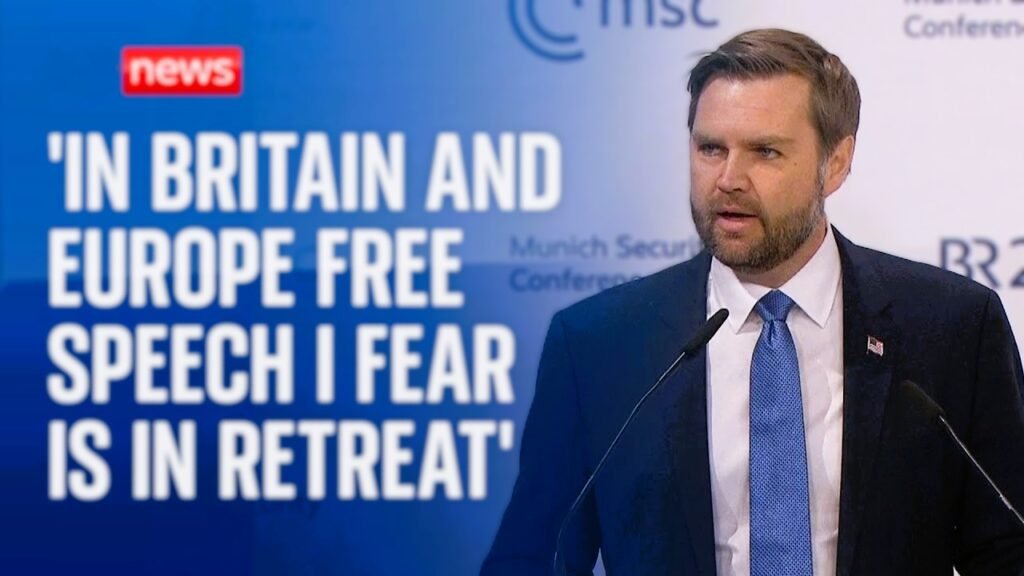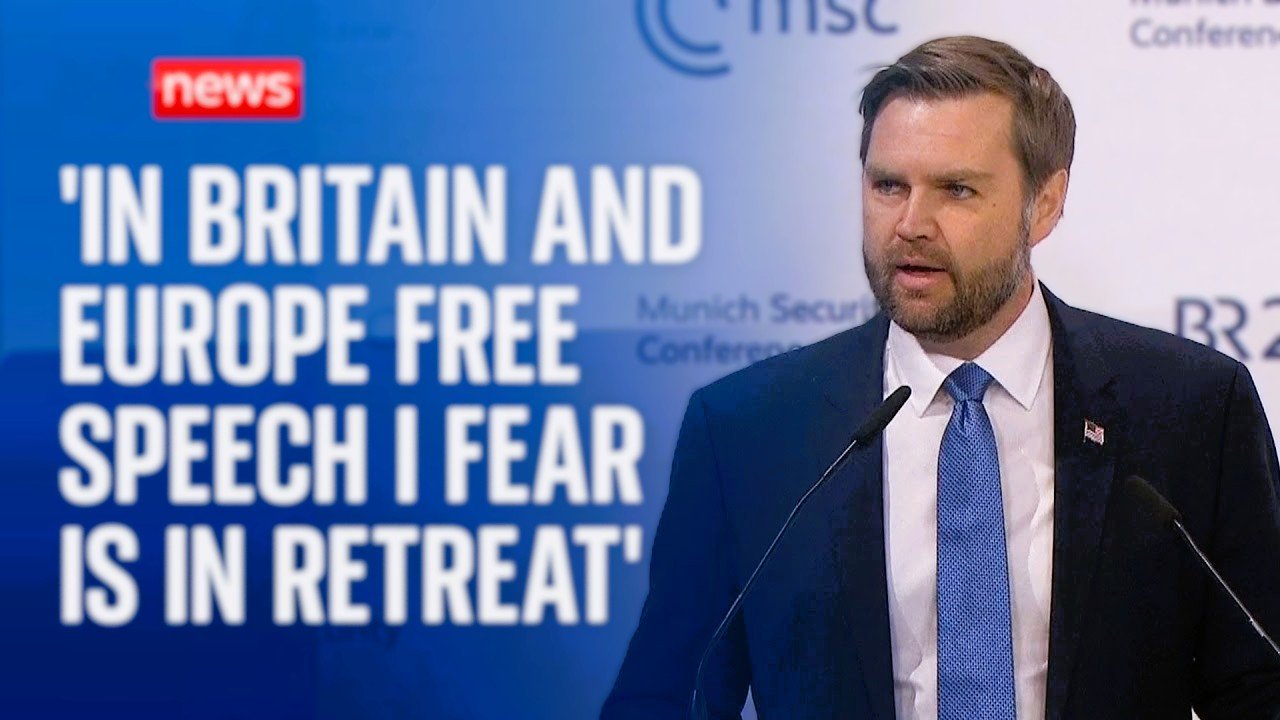EUROPE’S GREATEST THREAT: INTERNAL DECAY OR EXTERNAL ENEMIES?
At a recent high-profile security conference, a senior U.S. official stunned the audience by shifting the focus away from external threats like Russia and China and instead warning about a more insidious danger—a creeping retreat from democratic values within Europe itself.
For years, discussions on European security have revolved around defense strategies against military threats, cyber warfare, and geopolitical tensions. However, this speech took a different turn, highlighting growing concerns about censorship, election interference, and an erosion of civil liberties. The message was clear: the biggest challenge to Europe may come from within.

🇪🇺 THE RETREAT FROM DEMOCRACY?
🔴 Key Concerns Raised:
- Election manipulation? A former European Commissioner recently suggested that elections could be annulled if the results were undesirable.
- Growing censorship? Governments across Europe are expanding laws on hate speech and misinformation, leading to concerns over crackdowns on free expression.
- Religious freedom under threat? People are being arrested and prosecuted for expressing their beliefs—even through silent prayer.
These developments have raised alarm bells among U.S. officials, legal experts, and free speech advocates. As Western nations have long promoted democracy as a cornerstone of stability and freedom, critics now question whether Europe is undermining the very values it once championed.
📌 SHOCKING CASES: IS EUROPE BACKSLIDING ON CIVIL LIBERTIES?
The speech pointed to several disturbing examples of democratic erosion across Europe, sparking intense debate:
📍 Brussels: EU officials have publicly discussed shutting down social media platforms during times of civil unrest to prevent the spread of what they deem “hateful content.” Critics argue this move resembles authoritarian censorship, where governments control narratives and silence dissent.
📍 Sweden: A Christian activist was recently convicted after taking part in a Quran burning protest. Although Sweden has laws protecting free speech, the judge ruled that speech cannot be protected if it offends a religious group. This verdict has reignited debates over whether Europe is compromising free expression in the name of social harmony.
📍 United Kingdom: The UK government has prosecuted individuals for silent prayer. One case involved a former soldier, Adam Smith-Connor, who was arrested for standing silently near an abortion clinic, praying in remembrance of his aborted son. He was later found guilty under a “buffer zone” law, which prohibits influencing individuals near such clinics.
📍 Scotland: Authorities distributed letters warning residents in “safe access zones” that private prayer in their own homes might be illegal. Citizens were also encouraged to report neighbors suspected of breaking this rule.
Each of these incidents has fueled growing fears that Europe is moving away from its commitment to free speech and individual rights.
🗣️ CENSORSHIP OR SECURITY? THE GROWING DEBATE
As these cases gain global attention, the debate has deepened. Supporters of these policies argue that limiting speech and restricting public demonstrations is necessary to maintain social peace and prevent extremism.
However, critics argue that these measures are eerily reminiscent of past authoritarian regimes, where governments used security concerns to justify controlling public discourse and stifling dissent.
A key comparison made in the speech was to the Cold War era, when democracy was pitted against authoritarian states that censored opposition, silenced critics, and manipulated public opinion. The implication? Some of today’s European governments may be adopting similar tactics.
🇺🇸 TRUMP ADMINISTRATION RESPONDS: “WE WILL DEFEND FREE SPEECH”
The speech took a decisive turn as the U.S. official pledged that under Donald Trump’s leadership, the American approach to free speech would be fundamentally different.
🔹 Instead of silencing controversial views, the U.S. would actively defend them.
🔹 Washington would push back against censorship policies in allied nations.
🔹 The U.S. government would work to ensure that Western democracies remain committed to the principles of free expression and open debate.
This statement marked a clear break from previous U.S. administrations, which had at times pressured social media platforms to curb misinformation. The speaker criticized past American policies that encouraged censorship of certain views, including debates over COVID-19’s origins.
🔹 The message was clear: “Under the Trump administration, we may disagree with your views, but we will fight to defend your right to express them in the public square.”
This promise signals a potential policy shift in U.S.-Europe relations, with Washington expected to challenge European censorship laws more aggressively in the coming years.
🌍 WHAT COMES NEXT? EUROPE AT A CROSSROADS
With growing divisions between proponents of stricter regulations and advocates for free speech, Europe now faces a defining moment.
Possible outcomes:
✅ European governments might double down on their current policies, strengthening laws that regulate speech and public discourse.
✅ The backlash could force leaders to rethink these policies, particularly if legal challenges and public pressure mount.
✅ International scrutiny—particularly from Washington—may complicate diplomatic relations, leading to increased tensions between the U.S. and key European allies.
⚖️ A FIGHT FOR DEMOCRACY OR A NECESSARY EVOLUTION?
As this debate continues to escalate, one thing is clear—Europe’s future as a beacon of democracy is at stake.
Will governments uphold the values of free expression, open dialogue, and civil liberties?
Or will growing concerns over security and misinformation push Europe further toward censorship and controlled speech?
🚨 The world is watching. What happens next could shape the future of Western democracy.

